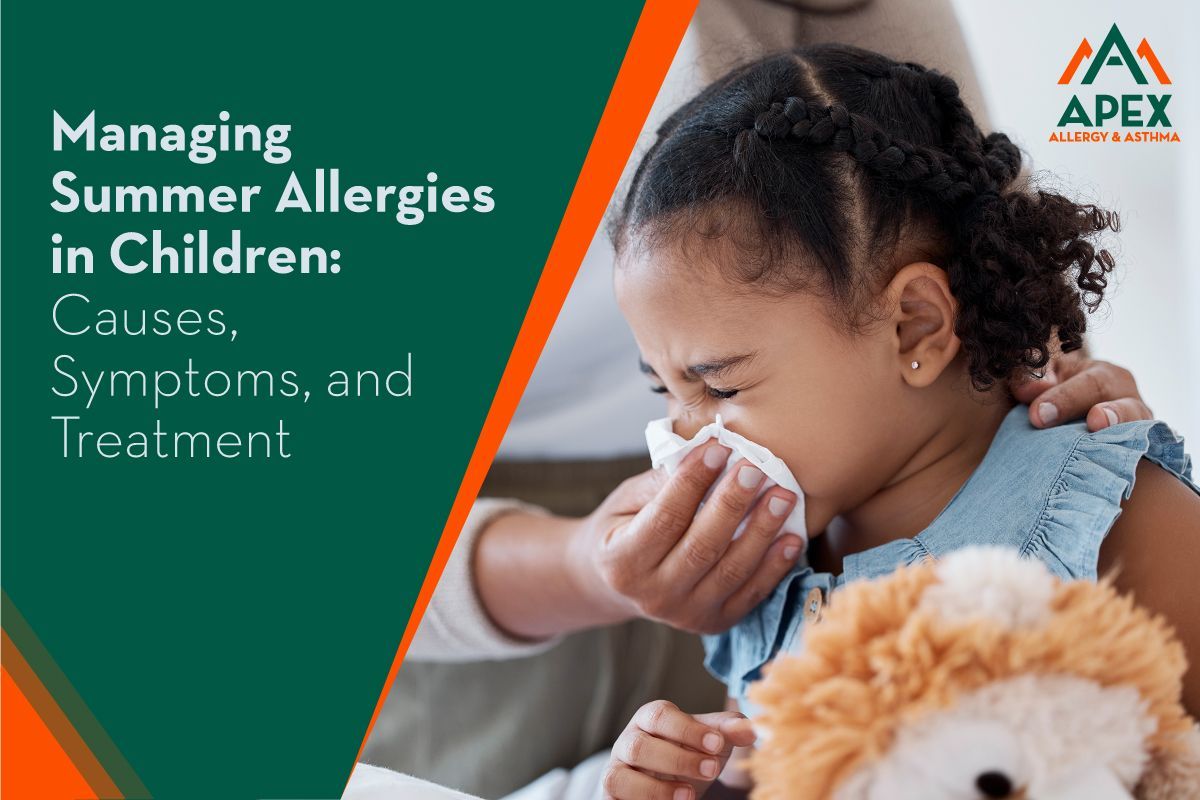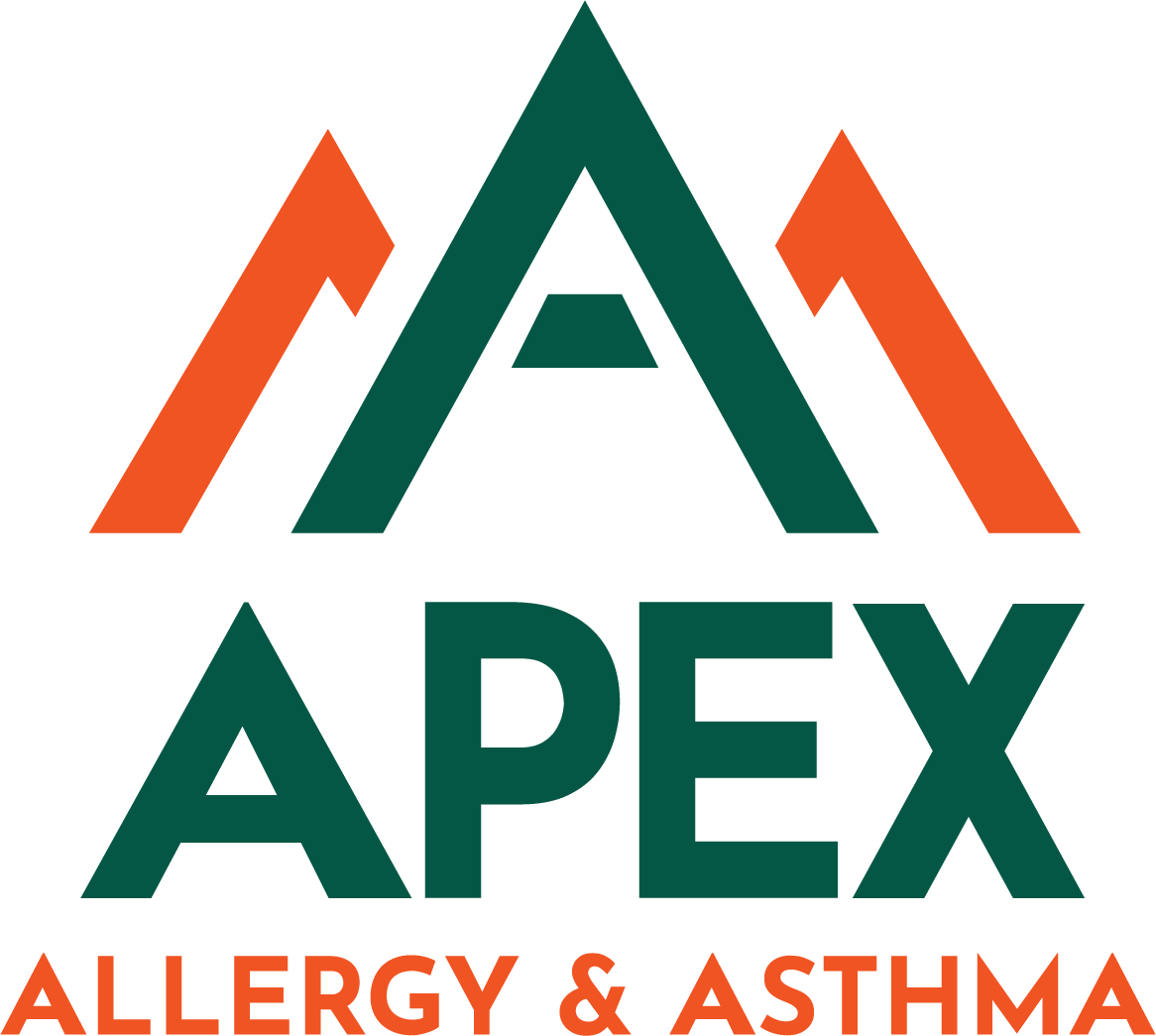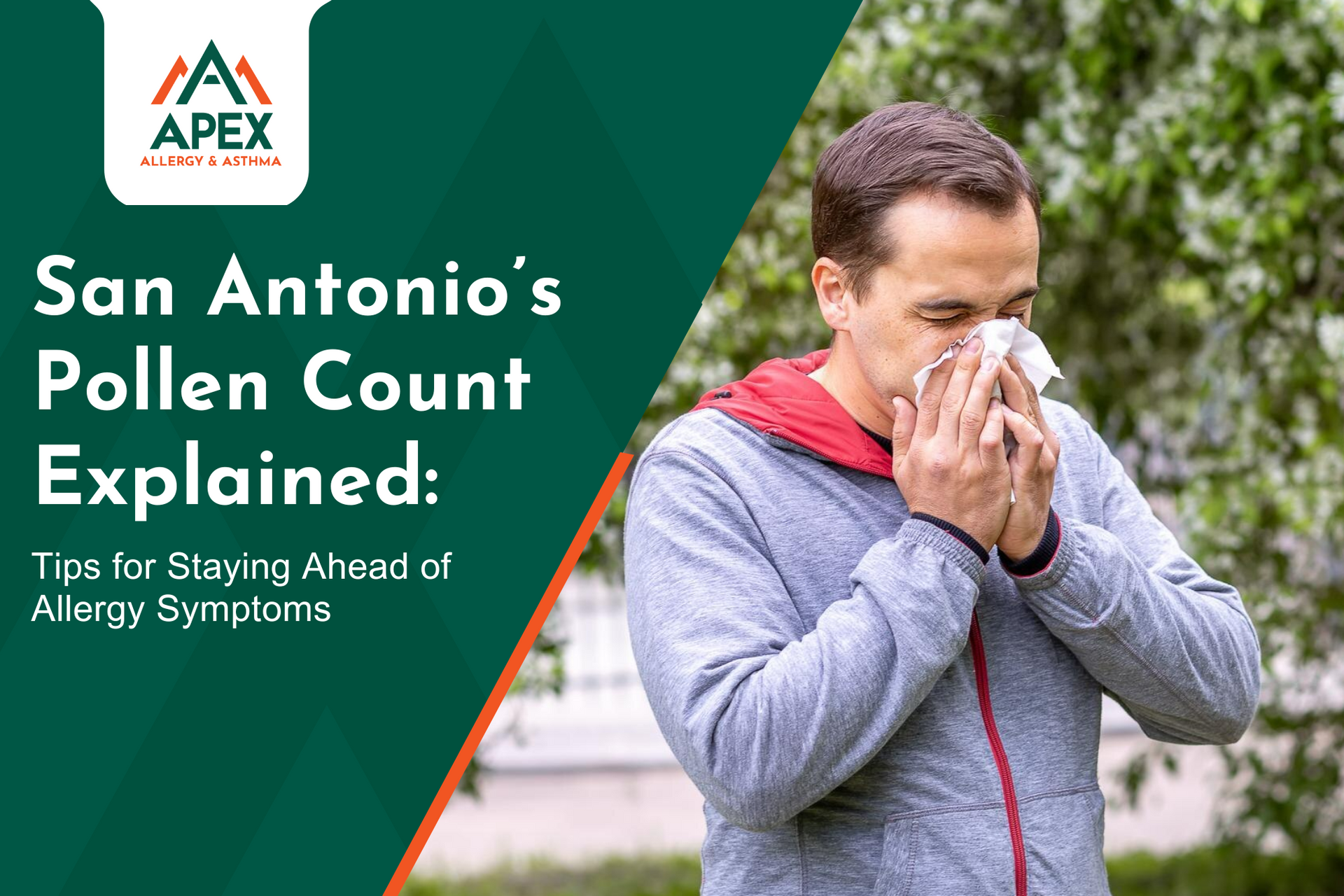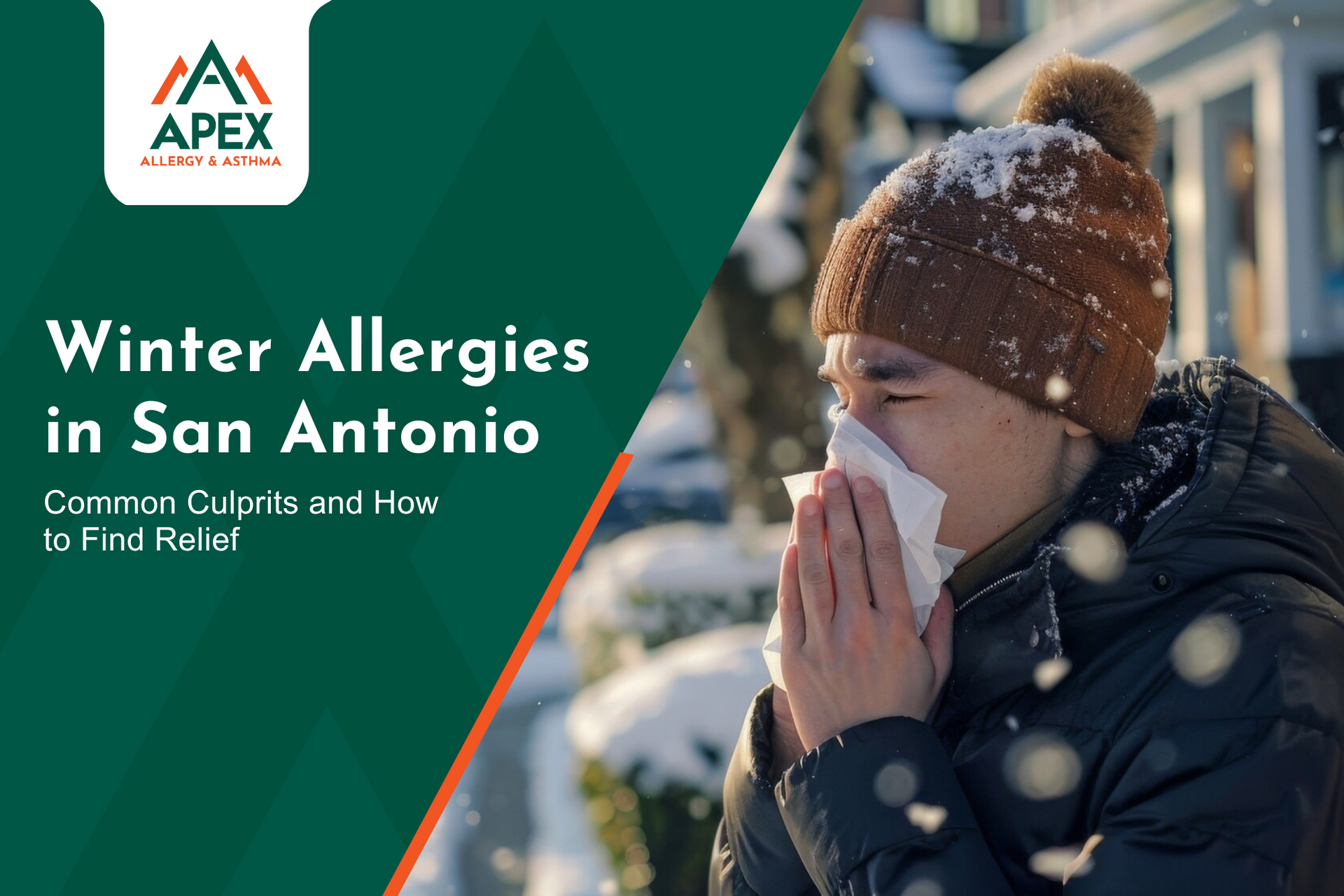Managing Summer Allergies in Children: Causes, Symptoms, and Treatment

The Centers for Disease Control and Prevention (CDC) report states that in 2021, 27.2% of children have one or more of three specified allergy diseases: seasonal allergies, eczema, and food allergies. Among these conditions, seasonal allergies were the most prevalent, accounting for 18.9% of all cases. These allergies tend to be particularly problematic during the summer months due to pollen and mold. As a result, children may require assistance with their outdoor activities to manage their symptoms effectively.
The good news is that you can help your child fully enjoy the summer season without worries by understanding how to manage allergies effectively. This article aims to educate you about the symptoms and treatment options for summer allergies in children. So, let's delve into seasonal allergies and discover practical ways to make the most of this vibrant season while keeping allergies at bay.
Summer Allergies Causes in Children
Summer is synonymous with fun and adventure, but it can be challenging for children with allergies. As a parent, it's essential to understand the following summer allergies causes.
- Air pollution
- Pet dander
- Mold
- Stinging insects like honeybees and wasps
By understanding these common causes of summer allergies in children, you can take proactive measures to manage their symptoms and ensure they have a healthy and enjoyable summer. Remember to be vigilant, take preventive measures, and seek medical treatment when necessary.
Summer Allergies Symptoms in Children
Summer allergies are prevalent among children and can cause many bothersome symptoms. Look at the common seasonal allergy symptoms your child could experience:
- Sneezing
- Breathing difficulties
- Runny or stuffy nose
- Watery and itchy eyes
- Skin rashes or hives
- Fatigue and irritability
Dealing with summer allergies can be a challenge for children. However, identifying these symptoms and seeking appropriate treatment with your
trusted allergist can help effectively manage their allergies and enjoy the summer season.
Preventive Measures for Managing Summer Allergies in Children
It can be a nightmare for parents and kids to deal with summer allergies. However, by implementing preventive measures, you can effectively manage and minimize the impact of these allergies on your child.
1. Identify the Triggers
To manage summer allergies in children effectively, you must identify the specific allergens that trigger their symptoms. Keep a log of the signs and note potential allergens your child could have encountered. This will help you pinpoint the culprits and take appropriate preventive measures.
2. Keep Your Home Clean
Frequently cleaning and dusting your house can significantly avoid allergens in the air. Additionally, using air conditioning helps keep indoor air pollen-free, providing a safe haven for your child.
3. Wear Protective Clothing and Accessories
Protect your child from allergens by wearing protective clothing like hats and sunglasses to protect your child’s eyes when outdoors. These accessories act as barriers, reducing direct contact with allergens with their skin and eyes. Remember, prevention is key!
4. Plan Outdoor Activities Wisely
Avoiding peak allergen hours can help prevent allergy symptoms in your child. Check the local pollen count and plan outdoor activities accordingly. Opt for early mornings or late afternoons when pollen levels are usually lower, ensuring a more enjoyable and symptom-free time outdoors this summer.
5. Consult a Pediatric Allergist
Consider consulting a pediatric allergist if your child's allergies persist or worsen despite preventive measures. They specialize in diagnosing and treating allergies in kids, providing personalized advice and treatment options to manage their symptoms effectively.
You can find more information on a child's allergy in one of our blog posts, "My Child Was Just Diagnosed with Eosinophilic Esophagitis. What Are the Treatment Options?."
Treatment Options for Summer Allergies in Children
Numerous summer allergy treatment options for your child are available to alleviate their symptoms. Finding the right solution can bring much-needed relief to your little one. Here, we'll explore various treatment options for pediatric allergies, ensuring your child enjoys a comfortable and symptom-free summer.
- Over-the-Counter Medications (OTC): Medications such as antihistamines and decongestants can be highly effective for mild allergy symptoms in children. These medications alleviate sneezing, itching, and congestion, providing much-needed relief during summer.
- Prescription Medications: Your child's allergies sometimes require more robust measures. Prescription medications, including nasal sprays and eye drops, can help manage more severe symptoms. These specialized medications target pediatric allergy symptoms like inflammation, itching, and nasal congestion.
- Immunotherapy: Immunotherapy, often called allergy shots, is a long-term solution for pediatric allergies. This treatment option involves gradually introducing small doses of allergens into your child's body, allowing their immune system to build tolerance over time. Immunotherapy can significantly reduce the severity of allergy symptoms and even provide long-lasting relief for your child.
- Natural Remedies: Besides conventional treatments, some natural remedies can relieve your child's summer allergies. Probiotics in certain foods like yogurt and pickles or supplements can aid immune system regulation and reduce allergy-related inflammation.
Remember, it's crucial to consult your child's doctor to know the most suitable treatment plan for their allergies. They will assess the severity of their symptoms and provide personalized guidance to ensure effective management of allergies in kids.
Frequently Asked Questions (FAQ) on Children's Allergy
Can Allergies Cause Fever?
Answer: No, allergies do not cause fever. However, they can produce symptoms similar to cold or flu, such as a stuffy nose, itchy eyes, and a scratchy throat. It is crucial to distinguish between your child's allergies and illnesses that could result in a fever, as this distinction can help determine the appropriate course of treatment.
Are Allergies Curable?
Answer: Allergies cannot be cured. However, there are ways to alleviate symptoms. Over-the-counter and prescription drugs can provide relief from allergy symptoms. Minimizing exposure to allergens can prevent allergic responses.
Find Relief for Your Child Summer Allergies with the Experts
Managing your child's summer allergies can be a challenging task. Still, you can alleviate their symptoms effectively with preventive measures, allergen identification, and effective treatment options.
By implementing these tips, you can help your child enjoy a summer free from the burdens of allergies. Remember, a little effort can go a long way in maintaining your child's health and well-being.
When searching for the "best allergy clinic in San Antonio, Texas," Apex Allergy and Asthma is your trusted destination. Led by the highly qualified double board-certified allergist,
Mark Stahl, DO, we offer personalized treatment plans and a comprehensive approach to relieving your child from the causes and symptoms of summer allergies. Our dedicated team strives to make your child's summer enjoyable and symptom-free.
Let us support you in ensuring your child's well-being throughout the sunny season. You can schedule an appointment by clicking
here to book online or call us at (210) 490-2051



